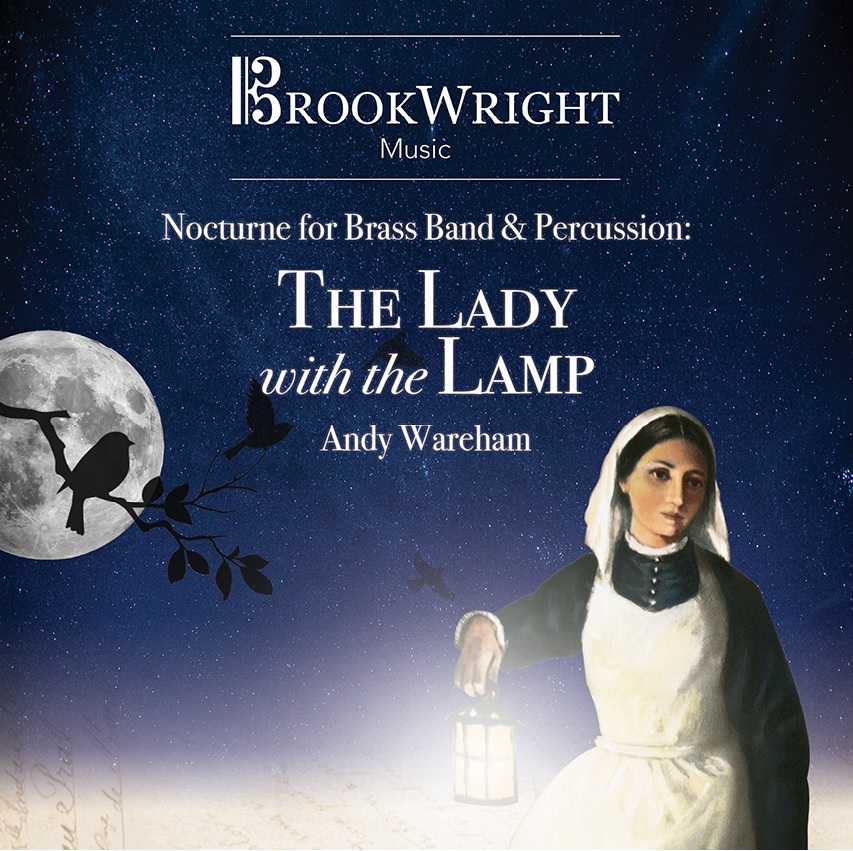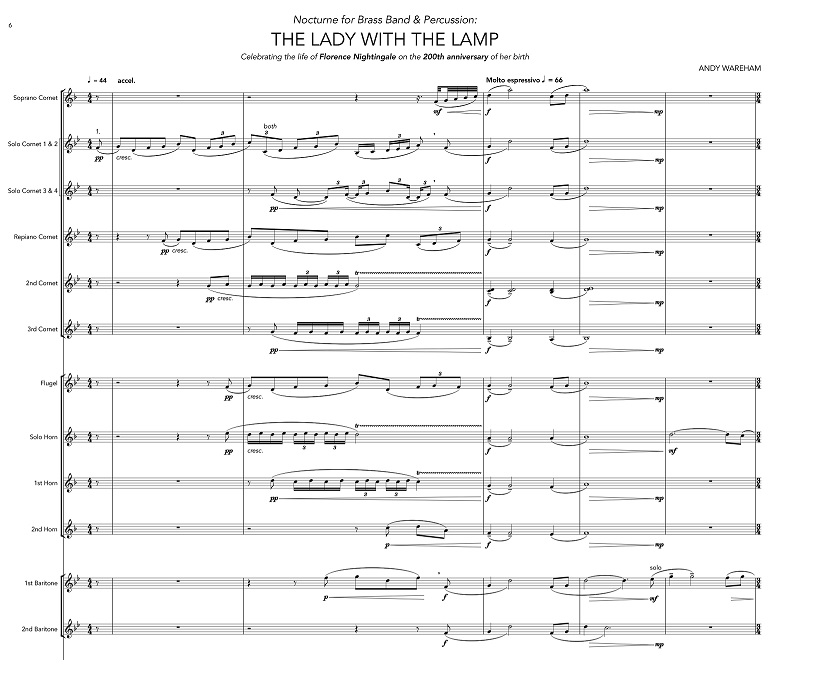

Florence Nightingale has become an unquestionable British icon – although in retrospect, one whose achievements have also been open to critical debate.
The ‘Lady with the Lamp’ was something of an early Victorian propagandist media creation from a Crimean War that was fast becoming a British disaster, although the achievements in improvements in sanitation and the re-evaluation of nursing practices led by her later prodigious bedbound correspondence were real enough.
Less well known was her pioneering work in data visualisation and social reform - whilst she also had a pet owl called Athena, which she kept in her pocket.
Evocative
Her life contains enough substance then for composer Andy Wareham to have written a symphony let alone this evocative ‘Nocturne’ – although his score (which celebrates the 200th anniversary of her birth in 2020) does have a direct sense of character.
Her life contains enough substance then for composer Andy Wareham to have written a symphony let alone this evocative ‘Nocturne’ – although his score (which celebrates the 200th anniversary of her birth in 2020) does have a direct sense of character.
It’s an imagination of her walking through the darkened corridors of the military hospital in Scutari; lamp in hand, the weak candlelight illuminating the faces of soldiers trying to gain peace from the horrors of war in the darkest hours of the night.

Kindness
Although the sense of patrician kindness permeates the writing, so does its military bearing with the percussion and the fragmentary hints of Mussorgsky’s ‘Pictures’ and Beethoven’s ‘Moonlight Sonata’ which offer a reminder of the very human elements of glory, suffering and death.
The scoring is imaginative and flowing (and excellently laid out) – whilst it should be within the scope of a good Second Section band and above.
Just over 5 minutes in duration, it condenses a great deal into its time frame (as well as stage choreography if required) – although still enabling a conductor to find a freedom of expression (through neatly realised obligato solos) as if Florence Nightingale lingers in a doorway observing the patients from afar.
The scoring is imaginative and flowing (and excellently laid out) – whilst it should be within the scope of a good Second Section band and above.
It all moves towards a glorious climax – grand, yet fleeting, before her night-time pilgrimage ends with a final chord of ambiguity; different, engaging but not over-sentimentalised.
Iwan Fox
Find out more and purchase:









